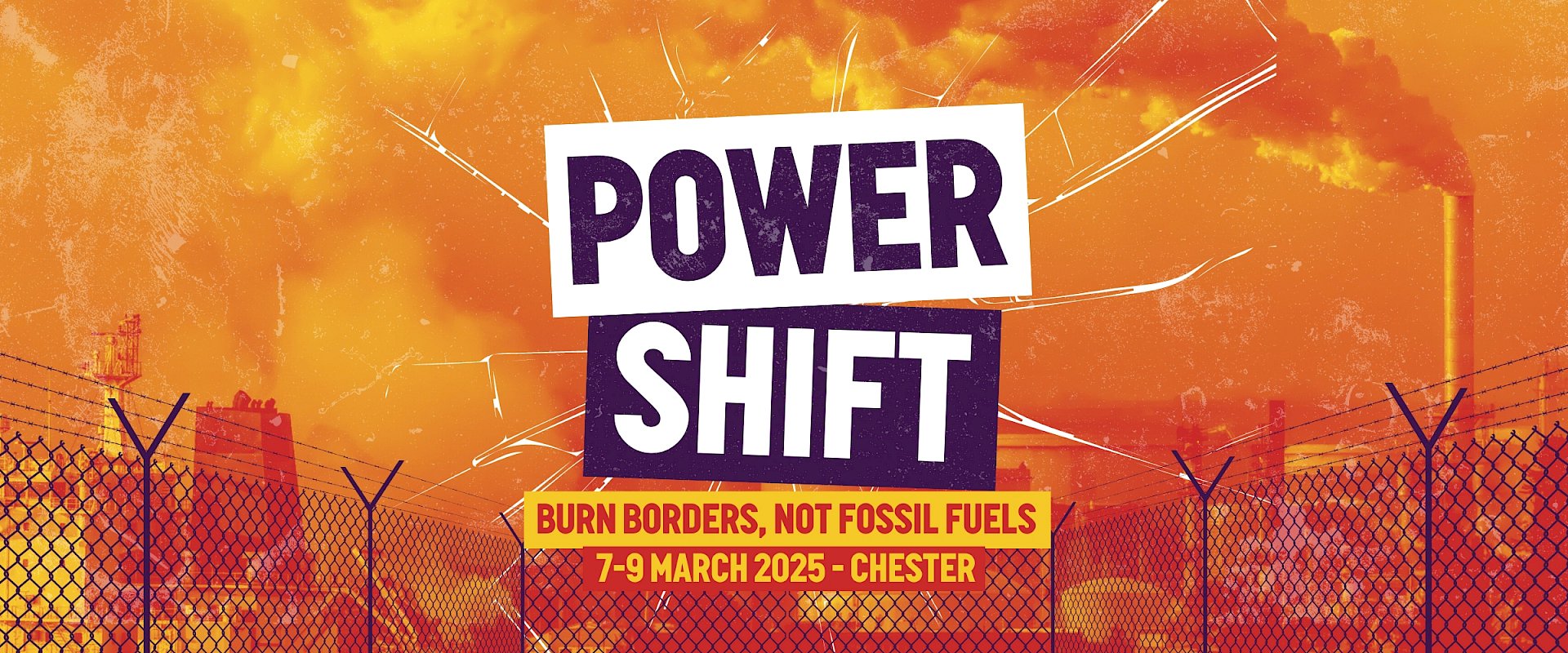Panels and political education
Why Climate Justice = Migrant Justice
As climate breakdown forces more and more people to flee their homes, states are erecting borders and creating ever more hostile environments for migrants. Meanwhile, private companies profit from the destruction of our planet and cruelty inflicted on migrants. This panel will explore why migrant and climate justice issues are intrinsically linked, how we can build movements for change, and what role the student movement can play in them.
With:
-
Tyrone Scott (War on Want)
-
Josie Mizen (People & Planet)
-
Michelle Cadiz (International League of Peoples’ Struggles)
-
Christine Bramwell (No Borders in Climate Justice)
-
Yazan Miri (Joint Council for the Welfare of Immigrants)
-
Rianke Gill (No Debt for Climate)
Beyond Extractivism: Building a Just Transition
The fight for climate justice goes far beyond our university campuses. Through global systems of injustice universities, states and fossil fuel companies prop up a system of exploitative and unsustainable resource extraction. In this session we will take a look at what extractivism means on a global scale and how this is interconnected with wider systems of oppression. We will then use this knowledge to map where our universities sit within this system and discuss how we can challenge extractivist logic in our own campaigning.
Understanding the Neoliberal University
Universities have undergone significant changes over the past decades, as neoliberalism has become more entrenched. In this panel, we'll be looking at the following questions: What is neoliberalism, and how can we see its effects in the management, governance, structure and culture of universities? Where does the university sit in relation to the state and to capital, and how do we see that reflected in everyday university experiences? As students today carry on struggles to push universities to divest from and cut ties with destructive industries (such as fossil fuel, arms and border industries), how must we understand these campaigns as part of a fight for a different university?
With:
-
Simon Gill, University of Manchester UCU
-
Tomi Amole, People & Planet
-
Carmen Wilson, Demilitarise Education
Students for people and planet: Learning from the past and building for the future
In this session, we will be discussing the history of student movements in Britain, demonstrating how the current student movement sits within a long tradition of struggle and solidarity. What examples of student mobilisations from the past can we learn from? What are the success stories that should inspire us? What has the role of the student movement been in pushing forward internationalist struggles and how have students historically seen their role in relation to broader movements? How can students today harness the spirit of collective resistance in a different university landscape?
Palestine, migrant and climate justice
Over the past year, we have seen how Palestine has galvanised people from all corners of society - and especially the student movement. How is the struggle for a liberated Palestine the same struggle for climate justice and migrant justice? How do systems of ecological destruction and border violence express themselves in the settler colonial occupation of Palestine? What are some concrete targets that illustrate the interconnections between these oppressive systems?
With:
-
Joseph, Energy Embargo for Palestine
-
Youth Front for Palestine
-
Yara Derbas, Palestinian Youth Movement
How do we resist state repression?
With student activists facing increased repression from both their universities and the state, what can we learn from groups and organisers who have built systems and strategies for resisting the state? From community self defense, to anti-raids and abolitionist struggles, our communities have always resisted state repression as a means of survival and caring for each other. This session will include a panel discussion on resistance to state repression from a range of community groups and organisers. We will discuss past and current means of resisting the state and how this can be built into our own organising contexts.
With:
-
John Pegram, Bristol CopWatch
-
Mea Aitken, Kids of Colour
-
Anna Olst, European Legal Support Center
Radical futures: What is the world we want to build and how do we get there?
Can you imagine a world without borders? without police? without extraction? What would it look like? What would it feel and taste and smell like? To be able to sustain our struggles, we have to have a vision of what we're fighting for. Radical imagination isn't something we have - it is a verb that we practice together. In this session, we will collectively draw out features of the just world we are creating and identify some of the actions we can be taking in the now too bring about the future we need!
